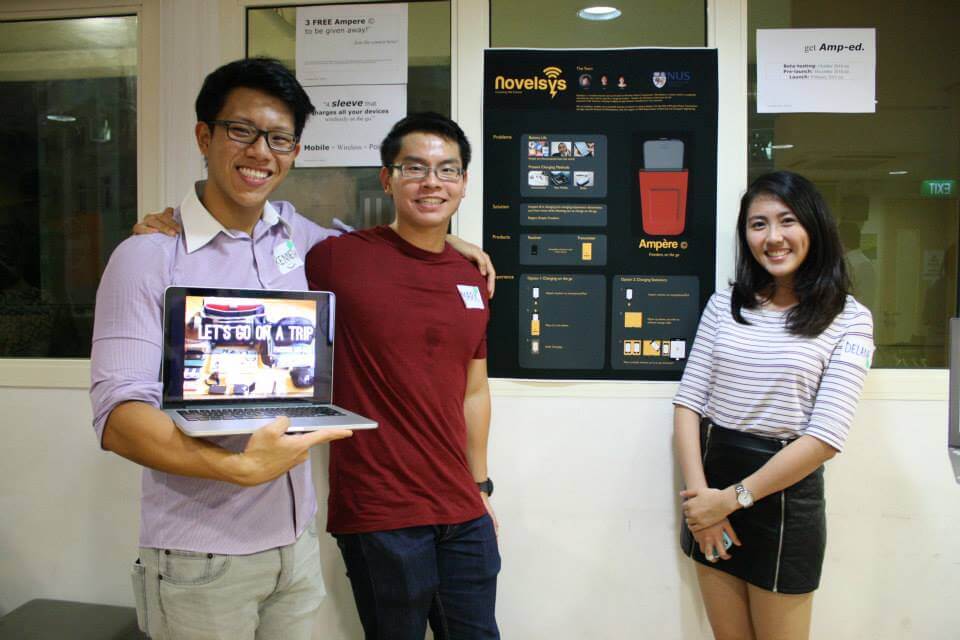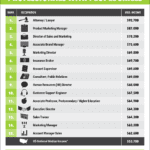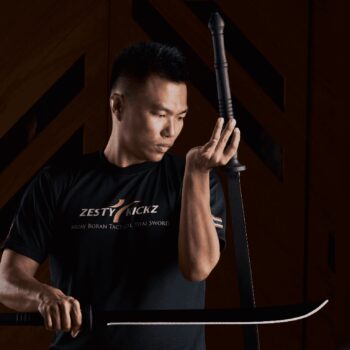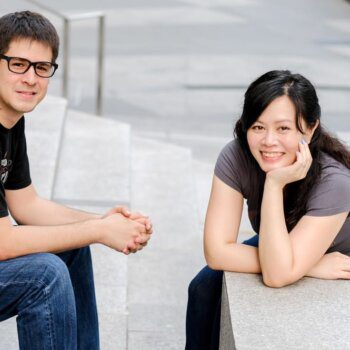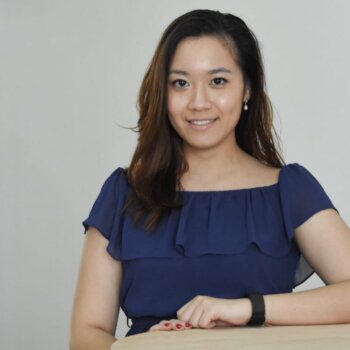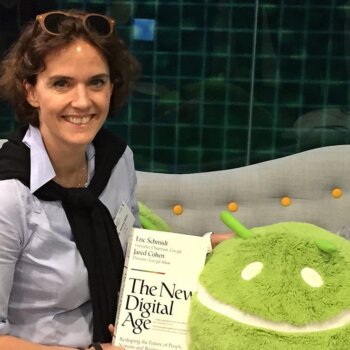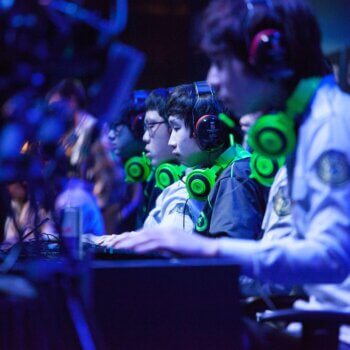Singapore – Two Singapore teams, consisting of students and alumni from the National University of Singapore (NUS) received prizes at the 2014 Global Talentrepreneur innovation & Collaboration (GlobalTiC) Award last week. Novelsys received the top prize for the Youth Pre-Start-up category, having competed against 11 other teams from Asia, Europe and South America. Called the JohnnyTiC Award, this included US$2,000 in prize money. Jayden Ooi, from Collappe was awarded the Best CEO, in recognition of his leadership performance and strategic vision. The GlobalTiC Award was held from 18 to 21 August 2014, in Taiwan.
“Our heartiest congratulations to Novelsys and Collape for representing Singapore and NUS so well at this year’s GlobalTiC Awards. Both teams won the Start- Up@Singapore 2014 business plan competition earlier this year – Novelsys under the Business Venture category and Collappe under the Infocomm category. This made them eligible for the GlobalTiC Award and NUS Enterprise nominated them to join, so they could compete against winning start-ups from around the world. We provided coaching and mentoring to help the teams in this international arena, in particular with their commercialisation and investment plans. Both teams demonstrated maturity, confidence and vision for their start-ups,” said Dr Lily Chan, CEO NUS Enterprise.
From L to R: Kenneth Lou, CEO and Co-founder of Novelsys, Kelvin Tan from NUS Enterprise and Jayden Ooi CEO and Co-founder Collappe. Photo source: NUS Enterprise
Novelsys ampereTM – Reinventing the mobile charging experience
Novelsys (http://www.novelsys.co/) was founded in 2014 by three NUS students – Kenneth Lou (NUS Business School), Delane Foo (NUS Division of Industrial Design) and Mark Keong (NUS Department of Electrical Engineering). They have taken a year off their studies to work on the company, to develop ampereTM, the world’s first wireless charging sleeve for mobile phones. Users simply drop their mobile phone into the sleeve and it charges wirelessly on the go, making it more convenient than bulky power-banks that require wires.
In addition to the US$2,000 GlobalTiC prize money, Novelsys has already received $15,000 in prize money from Start-Up@Singapore, $10,000 from the NUS Enterprise Practicum grant and $5,000 under the Philip Yeo Innovation Fellows Programme. Moving forward, they plan to apply for government grants and launch a crowdfunding campaign by the end of 2014. Novelsys targets to begin shipping their product by Q2 2015, focusing on the U.S. and South East Asia markets. Novelsys aim to position themselves as the leading wireless charging solutions provider, creating an eco-system for wireless charging in the future.
“Competing at the GlobalTiC was a fantastic experience. Over the past year, we have honed our pitch and presentation skills – through Start-up@Singapore, the Practicum grant and most recently with mentorship provided by Kelvin at GlobalTiC. This event had great networking opportunities – we hope to work with one of the judges in the future as a potential manufacturing partner,” said Kenneth Lou, CEO and Co-founder, Novelsys.
Collappe – Reimaginating Mobile Messaging for Collaboration and Productivity
After observing that many NUS students use standard mobile messaging apps for project work, the Collappe (www.collappe.com) team decided to create a chat- based mobile app that would boost collaboration. Their solution encompasses the simplicity and convenience of a mobile messaging app, as well as the productivity of today’s desktop solutions. Centred around a mobile chat interface, Collappe provides users with the ability to perform project coordination, task assignment and meeting scheduling. A minimal viable product has been developed and is undergoing closed beta user testing within the university. It has currently been well-received and its full launch on both the iOS and Android Stores is planned for Q1 2015.
Collappe is founded by a group of NUS alumni and students, Jayden Ooi (NUS School of Computing alumni), Joey Wang (NUS Faculty of Science alumni), Ivan Chong (NUS School of Computing alumni), Rax Suen (NUS School of Computing alumni) and Weilson Tan (NUS School of Computing undergraduate). Incubated and supported by the NUS School of Computing, they have been awarded a $10,000 NUS VasCo grant, as well as prize money of $15,000 for being the Infocomm Champion at the recent Start-Up@Singapore competition.
“We made Collappe for students. However during the GlobalTiC Awards event, we received positive validation from industry professionals as well, who suggested the potential for corporate usage. We may explore this further in the future. The competition has opened up bigger networks for reaching out to overseas students in China, Hong Kong, Taiwan and India. Winning the Best CEO prize was only possible due to the strong team. We want to adopt a mind-set of looking at things differently, in meeting changing consumer behaviour. In this way, we always stay relevant to our customer needs,” said Jayden Ooi, CEO and Co-founder Collappe.
The GlobalTiC Award (http://www.globaltic.org) started in 2007, and is an international competition for talented entrepreneurs who have won national or regional level business competitions. The award has two groups; New Start-up Companies and Youth Pre-Start-ups, with both Novelsys and Collape applying for the latter. Teams must fall within five industries; 1) Social Enterprise, 2) Creativity & Culture, 3) Internet, ICT & Cloud Computing, 4) Green Technology, and 5) Biotechnology & Nanotechology. The GlobalTiC Award aims to foster a stimulating environment for entrepreneurship, by providing incubation, internship, investment and business networking opportunities for its participants.
About National University of Singapore (NUS)
A leading global university centred in Asia, the National University of Singapore (NUS) is Singapore’s flagship university, which offers a global approach to education and research, with a focus on Asian perspectives and expertise.
NUS has 16 faculties and schools across three campuses. Its transformative education includes a broad-based curriculum underscored by multi-disciplinary courses and cross-faculty enrichment. Over 37,000 students from 100 countries enrich the community with their diverse social and cultural perspectives.
NUS has three Research Centres of Excellence (RCE) and 24 university-level research institutes and centres. It is also a partner in Singapore’s fifth RCE. NUS shares a close affiliation with 16 national-level research institutes and centres. Research activities are strategic and robust, and NUS is well-known for its research strengths in engineering, life sciences and biomedicine, social sciences and natural sciences. It also strives to create a supportive and innovative environment to promote creative enterprise within its community.
About NUS Enterprise
NUS Enterprise was established in 2001 to provide an enterprise dimension to NUS teaching and research involving the University’s students, staff and alumni. It nurtures talents with entrepreneurial and global mind-sets, and promotes the spirit of innovation and enterprise through a wide variety of programmes and activities. These fall under four focus areas: Entrepreneurial Education, Active Industry Partnership, Holistic Entrepreneurship Support and being Asia’s Thought Leader for Innovation & Enterprise.
